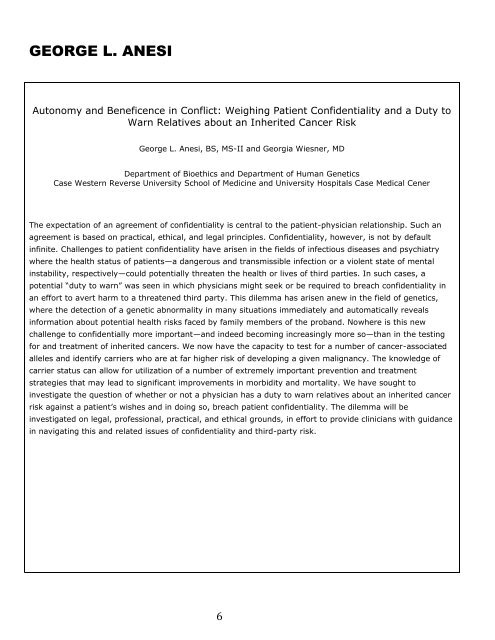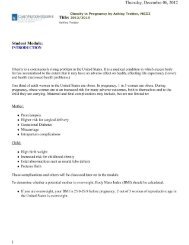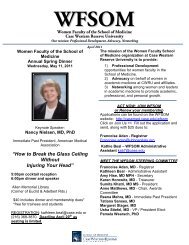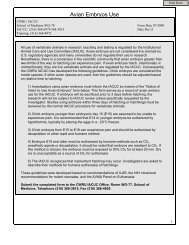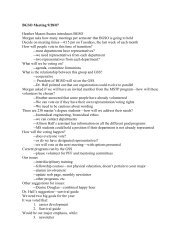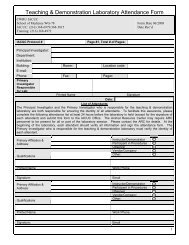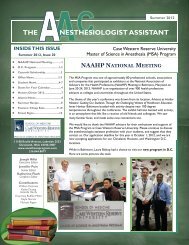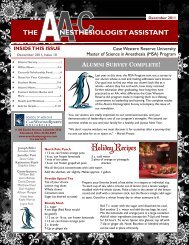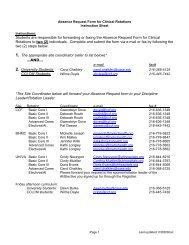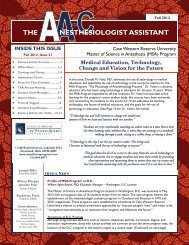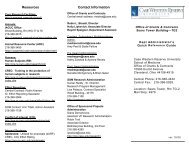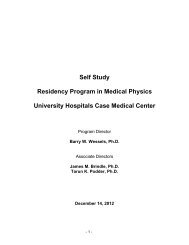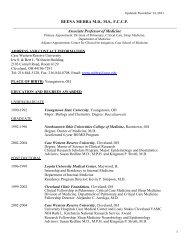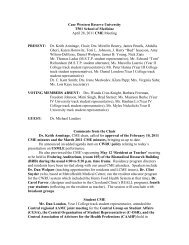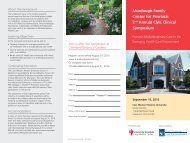student research day - Case Western Reserve University School of ...
student research day - Case Western Reserve University School of ...
student research day - Case Western Reserve University School of ...
You also want an ePaper? Increase the reach of your titles
YUMPU automatically turns print PDFs into web optimized ePapers that Google loves.
GEORGE L. ANESI<br />
Autonomy and Beneficence in Conflict: Weighing Patient Confidentiality and a Duty to<br />
Warn Relatives about an Inherited Cancer Risk<br />
George L. Anesi, BS, MS-II and Georgia Wiesner, MD<br />
Department <strong>of</strong> Bioethics and Department <strong>of</strong> Human Genetics<br />
<strong>Case</strong> <strong>Western</strong> Reverse <strong>University</strong> <strong>School</strong> <strong>of</strong> Medicine and <strong>University</strong> Hospitals <strong>Case</strong> Medical Cener<br />
The expectation <strong>of</strong> an agreement <strong>of</strong> confidentiality is central to the patient-physician relationship. Such an<br />
agreement is based on practical, ethical, and legal principles. Confidentiality, however, is not by default<br />
infinite. Challenges to patient confidentiality have arisen in the fields <strong>of</strong> infectious diseases and psychiatry<br />
where the health status <strong>of</strong> patients—a dangerous and transmissible infection or a violent state <strong>of</strong> mental<br />
instability, respectively—could potentially threaten the health or lives <strong>of</strong> third parties. In such cases, a<br />
potential ―duty to warn‖ was seen in which physicians might seek or be required to breach confidentiality in<br />
an effort to avert harm to a threatened third party. This dilemma has arisen anew in the field <strong>of</strong> genetics,<br />
where the detection <strong>of</strong> a genetic abnormality in many situations immediately and automatically reveals<br />
information about potential health risks faced by family members <strong>of</strong> the proband. Nowhere is this new<br />
challenge to confidentially more important—and indeed becoming increasingly more so—than in the testing<br />
for and treatment <strong>of</strong> inherited cancers. We now have the capacity to test for a number <strong>of</strong> cancer-associated<br />
alleles and identify carriers who are at far higher risk <strong>of</strong> developing a given malignancy. The knowledge <strong>of</strong><br />
carrier status can allow for utilization <strong>of</strong> a number <strong>of</strong> extremely important prevention and treatment<br />
strategies that may lead to significant improvements in morbidity and mortality. We have sought to<br />
investigate the question <strong>of</strong> whether or not a physician has a duty to warn relatives about an inherited cancer<br />
risk against a patient’s wishes and in doing so, breach patient confidentiality. The dilemma will be<br />
investigated on legal, pr<strong>of</strong>essional, practical, and ethical grounds, in effort to provide clinicians with guidance<br />
in navigating this and related issues <strong>of</strong> confidentiality and third-party risk.<br />
6


